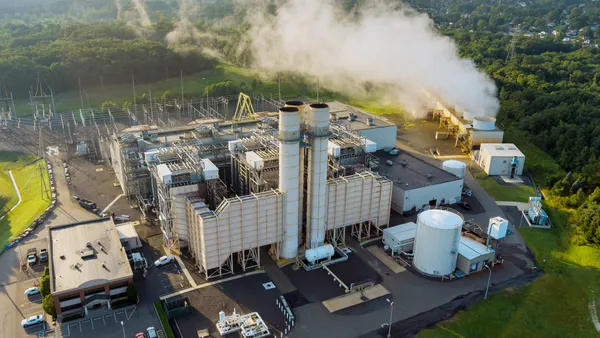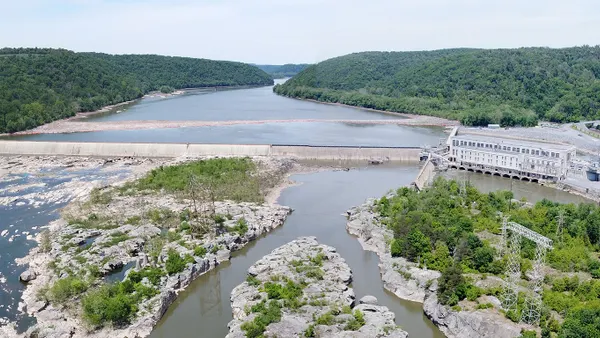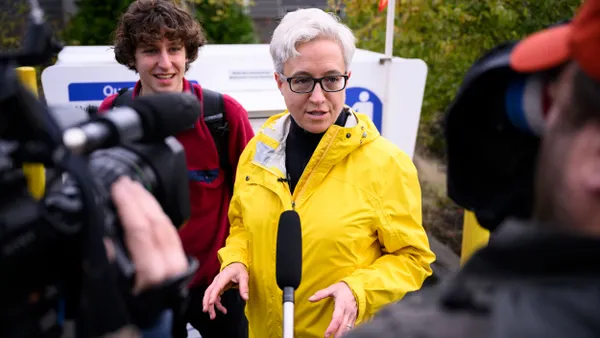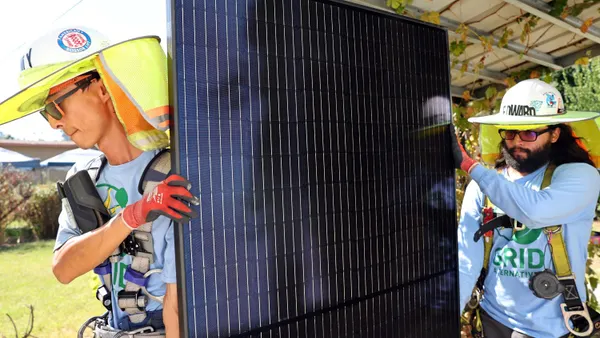Dive Brief:
- The New York Public Service Commission last week issued new interconnection rules for solar projects larger than 50 kW aimed at clearing a backlog of inactive projects and allow feasible proposals to move forward.
- More than 2,000 projects between 50 kW and 2 MW were proposed between April and December of 2016, leading to the current interconnection backlog.
- The PSC said the changes include fixed decision deadlines and cost-sharing requirements. Developers would be required to pay a quarter of system upgrade costs, in order to prove they intend to construct the project.
Dive Insight:
New York's community solar program stalled last year, with hundreds of projects with little chance of reaching completion. By one analysis, there were 1.8 GW of projects in the interconnection queue—but only about 125 MW was expected to be constructed.
New York's shared renewables program program extended the state's net energy metering policy to centrally-located solar arrays and other types of renewable generation of up to 2 MW, creating potentially-lucrative opportunities developers rushed to cash in on.
“These new requirements will help determine whether a proposed solar project is viable and should move forward to construction, providing clean renewable power for customers,” PSC Chair Audrey Zibelman said in a statement. “Every proposal requires a lengthy, in-depth analysis to determine whether it is feasible and, too often, unrealistic projects have been getting in the way of workable proposals."
Developers would need to prove they obtained the property owner’s consent to develop their project, and developers will be required to submit an executed form acknowledging that the property owner has consented to work exclusively with a particular developer or that the property owner and developer have signed a land-use agreement.
“This change should eliminate conflicts where two or more developers have filed applications seeking to interconnect projects on the same site,” Zibelman said. “The disclosure requirement will also ensure that property owners are fully informed of proposals and activities that would affect their property
The new policy will require Central Hudson Gas & Electric, Consolidated Edison and Rochester Gas & Electric, to file tariff amendments and updated interconnection requirements.
The new rules also establish an interim cost-sharing requirement designed to spread the cost of some upgrades to all the projects that benefit from them. But the interim mechanism requires that the first project that triggers the need for the upgrade to bear all of the costs, subject to reimbursement from later projects. PSC said staff of the Department of Public Service will work with stakeholders on a "long-term, comprehensive methodology for allocating the costs of shared system upgrades."














